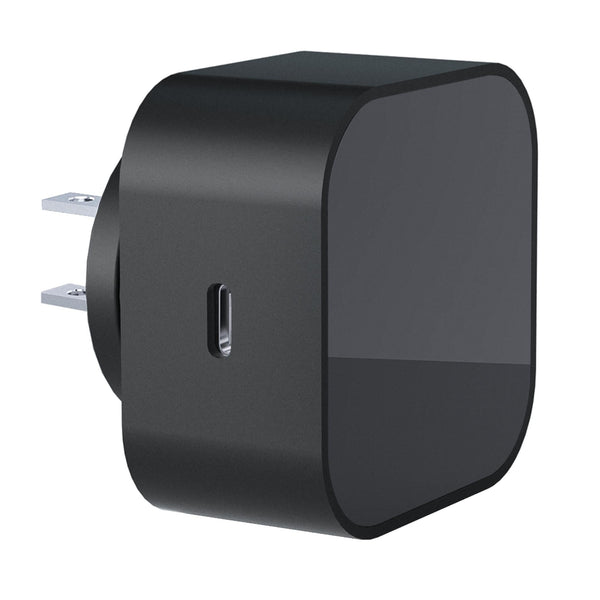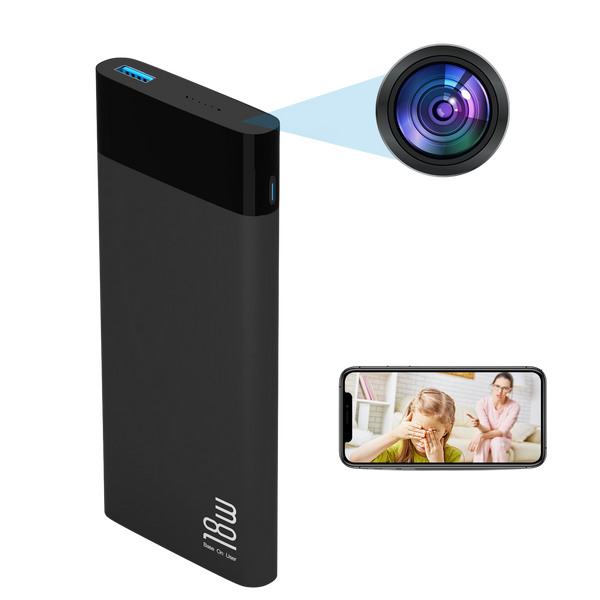Home Security Cameras: Wireless vs Wired
Enhance your family's security with a surveillance camera system. Choose between wired and wireless options based on your needs.
Both types allow you to monitor your property when you're away, enhancing safety inside your home.
If you're unsure which to choose, we're here to explain the key differences to help you decide.
You'll soon know which option best enhances your home security system.
Wired Security Camera

Wired Security Camera
Wired security cameras transmit video and audio data to a central hub via a cable and utilize DVRs (digital video recorders).
You can connect between 4 and 16 cameras, with continuous recording securely stored on the hub or sent over a network.
DVR systems use coaxial cables for power, while newer NVR systems use PoE (Power Over Ethernet) cables.
View live feeds using a smartphone or connect a monitor for real-time footage.
Pros and Cons of Wired Security Camera
Pros
- Reliable with minimal interference
- More secure against wireless hacking
- Consistent and clear video/audio signals
- Larger field of view and high resolution
- Lower lag time in live view
Cons
- Requires professional installation
- High setup costs
- Wires need hiding through walls and ceilings
- Apps for remote viewing aren't user-friendly
- Not portable and can't be easily relocated
- Limited cameras by DVR ports
Advantages of Wired Security Camera
Wired cameras offer reliability without worries about Wi-Fi signal drops or battery issues.
As long as the wiring is intact, the signal remains uninterrupted.
Decide if the system connects to the internet for live viewing when away, or operate locally for increased security.
Expect a consistent feed from HD cameras, unaffected by bandwidth fluctuations.
Wired cameras cover larger areas than wireless options.
Disadvantages of Wired Security Camera
Wired cameras cost less in equipment but more to install, needing professional help for extensive wiring.
The software isn't as advanced or user-friendly as wireless systems.
You may need a monitor for footage playback.
Wireless Security Camera

Wireless Power Bank Security Camera
Wireless systems transmit data over Wi-Fi, powered through cables or solar panels, storing data on cloud servers or micro SD cards.
Access live or playback footage easily.
Features include motion detection, night vision, and two-way audio.
Pros and Cons of Wireless Security Camera
Pros
- Easy setup, perfect for DIY enthusiasts
- Relocatable, ideal for renters
- Can't be tampered with by cutting wires
- Cloud storage for viewing on the go
- Easy to expand the system
Cons
- Needs wires for power source
- Vulnerable to hacking
- Video quality depends on Wi-Fi
- Signal interference issues
- Limited by Wi-Fi range
- Lower image clarity
Advantages of Wireless Security Camera
Set up wireless cameras quickly by connecting to power and Wi-Fi. They're relocatable for flexibility.
Control from smartphones for live or past footage, with cloud storage for data retention.
No wires make them tamper-resistant.
Ranges up to 500 feet without interference.
Disadvantages of Wireless Security Camera
The performance depends significantly on Wi-Fi. Fluctuations affect footage quality.
Signals weaken through dense materials.
Security cameras susceptible to hacking due to internet connection.
Make Your Choice
Now informed on the differences between wired and wireless cameras, choose the best for you. We offer a variety of equipment to enhance safety, shipped from our Pennsylvania, Texas, Florida, Nevada, and Utah warehouses. Ensure legality in your state.









